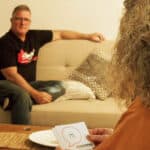
When children get cochlear implants, it’s important that they wear their audio processors regularly throughout their waking hours. One of the biggest concerns for parents and caregivers is how to keep their child’s audio processor on. In this blog post, we’ll provide you with tips that can help you get your child to wear their hearing implant audio processor as much as possible.

.png)




